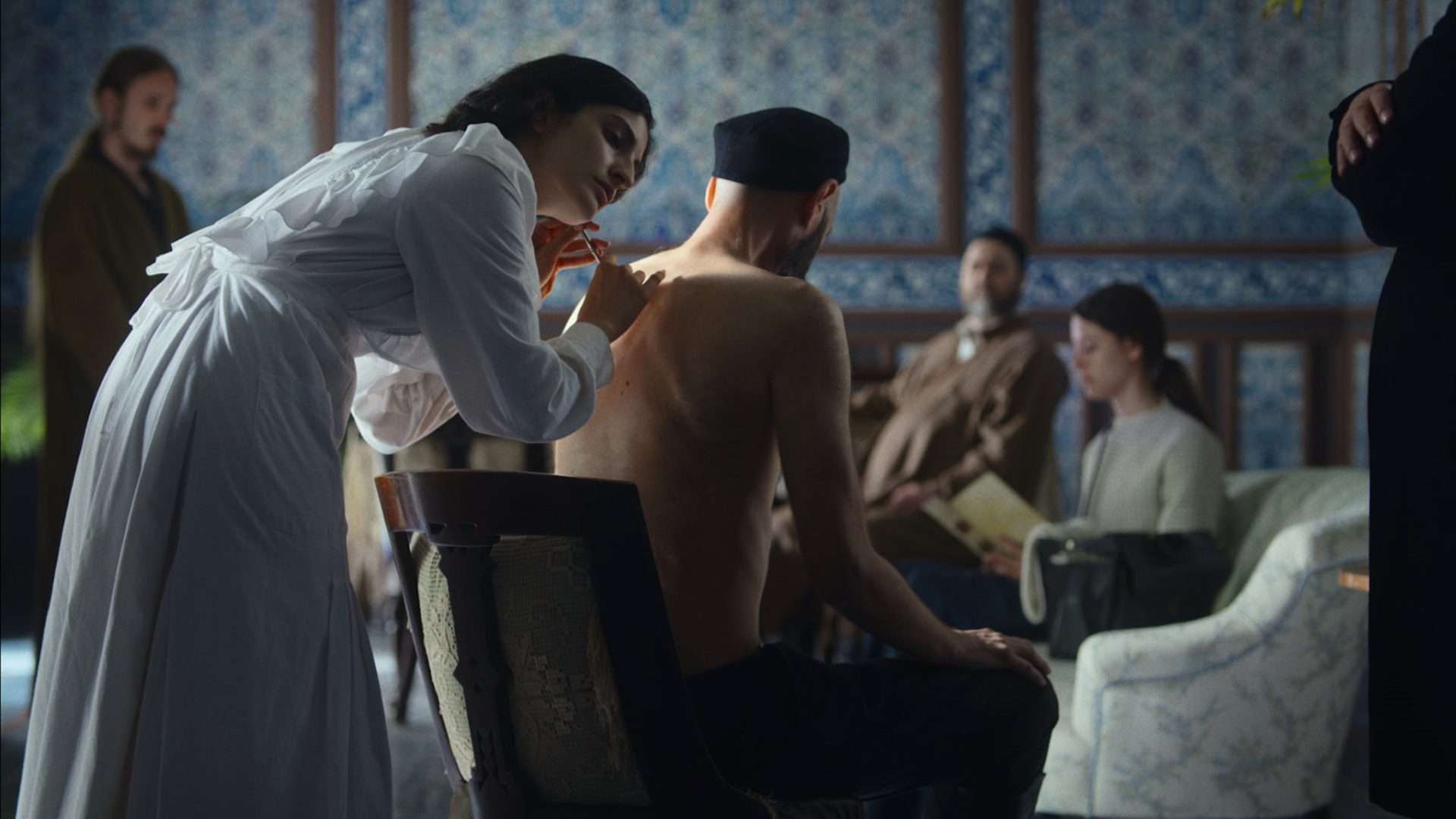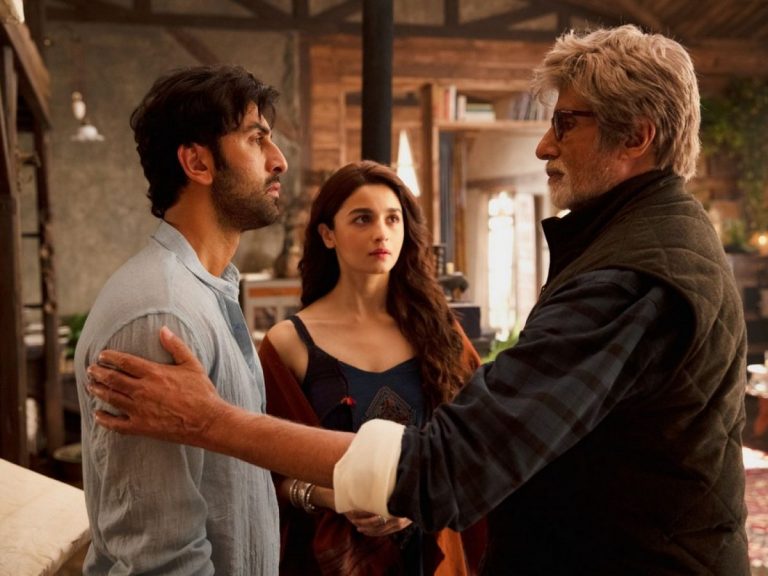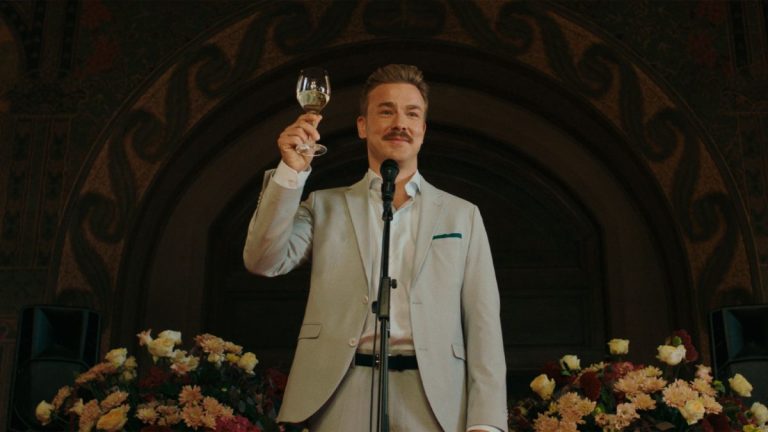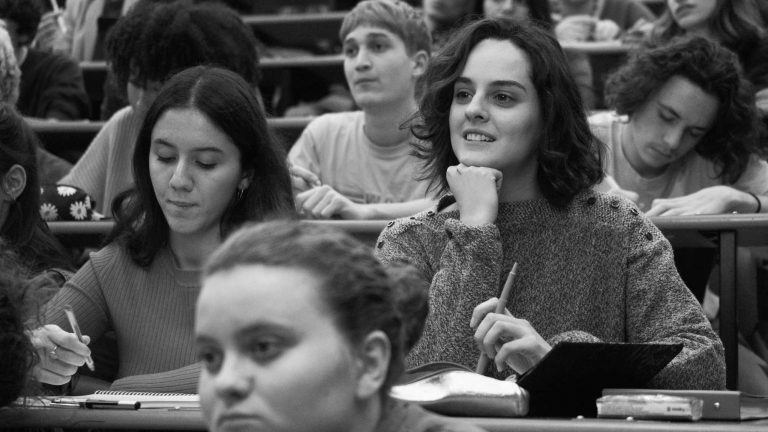At the very outset, Ivan Salatić’s “Wondrous is the Silence of My Master” (“Otapanje vladara,” 2025) claims the guise of a tale’s fragments rediscovered years later. It’s composed of not so much scenes as whispers of growing disquiet. Scattered notes of the guardsman to the de facto ruler of Montenegrin tribes steer the trajectory of events harking back to the 19th century. Duko is an eagerly compliant servant to his master, the poet and bishop Morlak. He wields the power of a cult leader, his vocabulary sliding frequently to that of parables. A threat of invasion compounded by a creeping sickness drives Morlak to resettle with his daughters in a more hospitable, unperturbed clime in southern Italy. Duko follows silently but soon starts grudging the relocation stretching beyond his initial fathom.
This film is spare and unnerving. It is distilled to a hazy outline of perceptions that incite a concealed restlessness. An eerie, dense atmosphere clouds scenes orchestrated with a wiry precision by Salatić. The sound is as subdued and hushed as vivid and expansive the frames are. Ivan Marković’s images ooze a thick sense of foreboding and cyclicality, disaffection biding its time. Duko is unerringly faithful but he cannot quite shake off the ache for his homeland. He insists they return, but Morlak dismisses him. The latter is drawn into finding the cure for his sickness. Morlak keeps deferring Duko’s wishes. The latter can barely stifle his impatience and anguish but to no avail.
Morlak is sunk into a strange, blind torpor, shut out from those around him. All he does is dispense litanies that are supposed to emotionally anchor his followers. When he pivots to someone else, a visiting scholar whom Duko views as his potential replacement, the latter is immediately alarmed. Duko begins scanning the room for signs of the master’s waning confidence in him. He feels rejected and abandoned while Morlak leans evermore into philosophies that may as well now seem distant for his most steadfast servant.

The film swims in the realm of the imagined, steeped in distrust and envy. Psychological unease in the narrative isn’t so much spelled out through aggressive confrontations as it is through dawning realizations accruing damaging, vicious underlayers. At what point does faith turn corrosive, stunting what one may aspire for? Faith, obedience, and a need for direction and guidance can be strangleholds too, if one lets themselves be sucked into it for too long, beyond the reins of well-being.
With carefully considered exhalation, “Wondrous is the Silence of My Master” situates a throbbing inner world. The language characters speak is of disguise, equivocation. Directness of encounters or confessions is held off until a later notice. Instead, the master offers only psalms as a reprieve. Duko must hold onto, clench tight his belief in the bishop. If he strays, he will be lost. Duko’s inner journey is riddled with eventual doubt. Must he rely at all on the clutch of inklings festering within him, goading him beyond the path of faith? He anxiously gropes.
Frustration, hurt and confusion escalate. There’s no room for venting. Reaching for articulation is halted, and postponed too many times. What is its fallout? The results manifest to steady, insidious, inevitable effect. Should Duko allow the bramble of insecurity to blot out love and trust in his master? We witness the unmaking, the shifting over of an individual from seeming light to the dark and morally troubling. In the absence of clarity, Duko edges toward desolation and sin. Control gives way to eruption, a lashing out violently cathartic. Each of the performances inhabits this world with quiet force. Overall, “Wondrous is the Silence of My Master” is a richly mysterious, assured film, slinking between thought and repressed action with skill as faint as effective.








